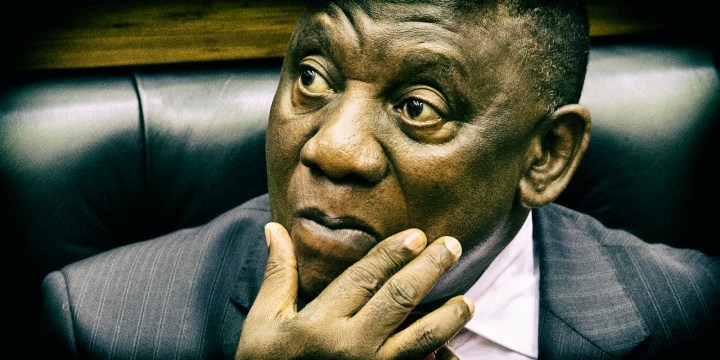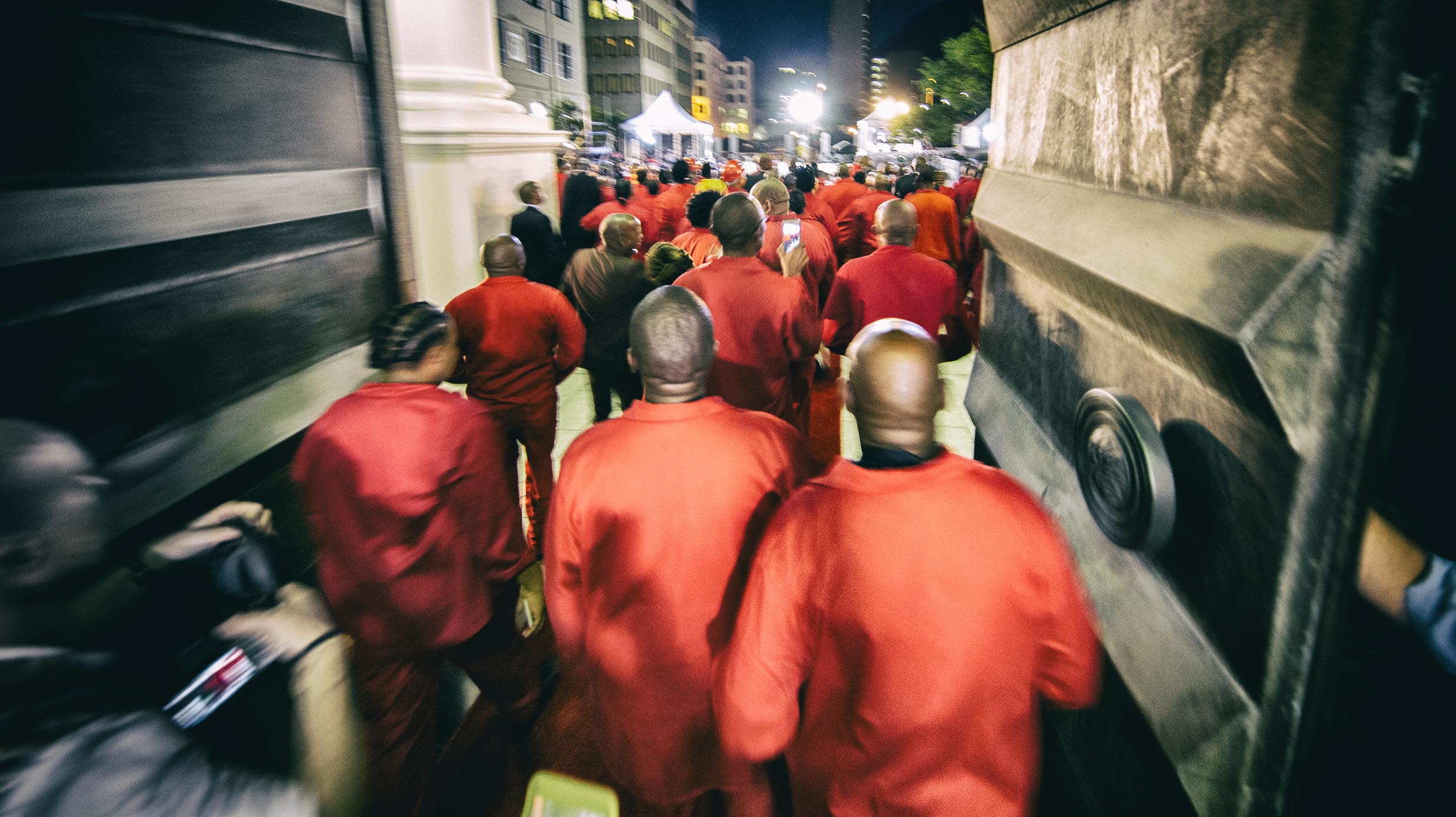#SONA2020
Social compact for unity and progress — if Ramaphosa has his way and his ministers can deliver

In a State of the Nation Address with something for everyone, it’s difficult to take umbrage. And so the response to President Cyril Ramaphosa on Thursday evening was largely welcoming — with a quibble, or even objection, here and there.
When labour federation Cosatu remains calm in the face of a presidential announcement that the public wage bill will have to be “contained”, something’s up. And that would be behind-the-scenes discussions to pave the way when around mid-2020 the negotiations for a new three-year wage deal must start.
“Largely pleasing. Positive,” was how Cosatu parliamentary co-ordinator Matthew Parks described the State of the Nation Address (Sona) on Thursday night.
The presidential commitment to work with social partners on Eskom was welcome, even if the speech was “a bit thin on State-owned Entities (SOEs), and SAA in particular” by talking rationalisation and better efficiencies without detail.
“The restructuring of the entire public sector needs to happen and happen fast because the weak capacity of the state is making it difficult for it to drive its developmental agenda and deliver much-needed services to people.”
It’s understood proposals to structurally change the public wage bill that at around 46% of spending is giving Finance Minister Tito Mboweni a headache, include slashing bloated management ranks and retraining civil servants for deployment from, say, national level to provinces.
It’s part of this social compacting President Cyril Ramaphosa repeatedly touted as the future way during his State of the Nation Address (Sona) on Thursday evening.
From Cosatu offering government employees’ pensions and social savings via the Public Investment Corporation (PIC) to help reduce Eskom’s R450-billion debt to the district development model — getting all spheres of government to work together to resolve local service delivery breakdowns — it’s all about social compacting.
“Achieving consensus and building social compacts is not a demonstration of weakness. It is the very essence of who we are. That is why over the past two years we have been hard at work seeking to forge and build consensus around our economic recovery plan,” said Ramaphosa.
And the economy was a key focus, with a candid admission of inadequacy, if not outright failure, given the current low growth, high unemployment and deeply unequal economy and society.
Like in 2019, inclusive economic growth on Thursday remained the yardstick.
Neither a state bank nor a sovereign wealth fund are new policies — the Post Office was supposed to have been turned into a state bank well over a decade ago — but mentioning these may just give impetus to the implementation.
Details have been left to Mboweni, who delivers his Budget on 26 February 2020. As have been the further details on cost-cutting across the state, including limiting the public sector wage bill.
Neither were new announcements of Eskom’s unbundling into three entities — it dates back to the February 2019 Sona — nor some of the new electricity-generating initiatives, including the new bid window for renewable energy which had been talked about by Mineral Resources and Energy Minister Gwede Mantashe on the sidelines of the Mining Indaba.
On Thursday, however, Ramaphosa confirmed the open-door policy for self-generating power projects under one megawatt, also undertaking that for those projects bigger than 1MW, licences would be issued within 120 days.
While normalising rolling power outages was not quite presidential, the opposition DA applauded Ramaphosa when he announced municipalities, like companies, would be able to procure their own energy.
Intellidex analyst Peter Attard Montalto said overall the Sona speech was a “PR win”, with a definite positive buzz with a 10 out of 10 score for PR, dropping to two for implementation.
“It creates some interesting bars to success for the Budget, for instance, on energy. However, we need to be careful that a lot here was already announced and is not new, some is spin, like on Eskom unbundling, and other things are very slow.”
Attard Montalto said Ramaphosa could have gone harder on timelines and specific responsibilities.
“We need to remember business sentiment is glued to the floor and won’t move on PR or even policy. It will only move on implementation…”
Immediately after the SONA, ministers seemed to be determinedly upbeat.
Mantashe was bullish, telling Daily Maverick an announcement on power self-generation by companies and municipalities would come next week. The other issues like electricity generating capacity outside Eskom was long-term, and dependent on investor appetite.
Other ministers are also detail-focused. Police Minister Bheki Cele said the specialist police training institution, modelled on FBI facilities, at Hammanskraal — a police training college already exists there — should be up and running by April 2020. It’s understood April is also the target month to launch the tourism equity fund.
The Sona got underway after a frustrating 90-minute delay as EFF parliamentarians brought countless points of order. The issues?
The presence of former president FW de Klerk who was called a “murderer” — his presence the previous year had not raised an eyebrow among the red brigade — and objections that Ramaphosa had not yet sacked Public Enterprises Minister Pravin Gordhan for SAA no longer flying to Durban, and Eskom’s rolling power outages.
After an unprecedented suspension of Sona, proceedings resumed and the EFF, having exhausted playing to the gallery, finally walked out.
“If the president will not fire Pravin (Gordhan), this is the situation in this House for the next five years,” vowed EFF leader Julius Malema.

EFF members stage a walkout during President Cyril Ramaphosa’s State of the Nation Address on Thursday 13 February 2020. (Photo: Daily Maverick/Leila Dougan)
However, EFF’s Commander-in-Chief may have overplayed his hand: all other political parties agreed the EFF should be referred to disciplinary proceedings over its conduct, and this time action needed to be taken rather than letting proceedings fizzle out.
Delays and frustrations aside, while not everyone was quite convinced by Ramaphosa’s appeals for unity, social compacting and deliverables, the opposition was not as sharply critical as previously.
DA Chief Whip Natasha Mazzone questioned Ramaphosa’s statement that his administration had moved “decisively” on State Capture and corruption. “It’s pretty alarming, some members of Parliament are directly implicated in State Capture. Let’s put our money where our mouth is.”
DA interim leader John Steenhuisen was significantly more critical; Ramaphosa had fallen short of making the critical announcements, with sufficient details, to reverse the current economic crisis.
The ANC response, unsurprisingly, was fuzzy and warm. ANC Treasurer-General Paul Mashatile “welcomed” Ramaphosa’s SONA on the steps of the National Assembly, saying “it was not just talk, it was about plans”.
Meanwhile, Outa (Organisation Undoing Tax Abuse) said in a statement that as an active citizen it would monitor implementation.
“We want to believe in the vision and plans promoted during the president’s speech. However, unless the promises made are followed by concrete, faster implementation, South Africa will remain in a precarious state. We are running out of time.”
Speaking immediately after SONA, a key concern for IFP honorary leader and parliamentary caucus head Mangosuthu Buthelezi was how few details emerged on Eskom.
“The image of the country is damaged. If Eskom is not fixed, all the good things he’s talked about will not happen.”
Or as IFP spokesperson Mkhuleko Hlengwa described Ramaphosa’s speech, in a twist on the “the lady doth protest too much”: “He doth promise too much”. DM

















 Become an Insider
Become an Insider